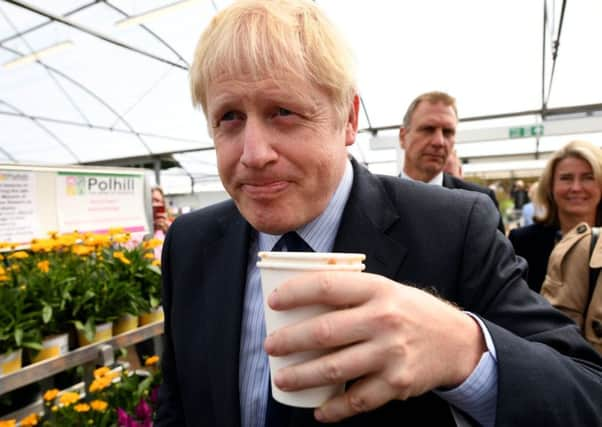Taking issue with Boris Johnson on taxing our ‘sins’ – leader comment


Boris Johnson’s campaign pledge to halt any increases in ‘taxes on sin’ may be a gift to satirists, but it’s also a savvy political move, given the electorate he must win over to secure a move to 10 Downing Street.
Even if the current taxes on tobacco and alcohol are fairly uncontroversial, most Tories are instinctively resistant to the idea of too much interference from the “nanny state”. And for good reason. Personal liberty is a fundamental requirement for any country that wants to call itself a member of the ‘Free World’. A state that imposes too many constraints, controls and restrictions on what we can and cannot do is not one many people would enjoy to live in.
Advertisement
Hide AdAdvertisement
Hide AdJohnson’s campaign team cited taxes on food high in salt, fat and sugar as an example of the sort of thing he was opposed to, while he specifically attacked the “recent proposal for a tax on milkshakes”, which he said “seems to me to clobber those who can least afford it”. Instead of using taxation, people should instead be encouraged to do more exercise, he added.
However, the point at which a state is entitled to start ‘interfering’ in the behaviour of individual citizens is when it starts to affect other people. Apart from a desire to encourage healthier lifestyles, taxing unhealthy food is a way to raise funds for the NHS, which is under serious pressure from the sheer number of patients diet-related conditions like diabetes.
There has been something of a race to the bottom among food manufacturers because our evolved fondness for sugar, fat and salt, as smaller supermarkets – many of which are now more like massive sweet shops – demonstrate.
The ‘sugar tax’ on fizzy drinks – introduced by former Conservative Chancellor George Osborne, who exempted milkshakes – actually helped firms who wished to cut levels in their products to a more reasonable level because it means that Coca-Cola, for example, is now more expensive than lower-sugar Irn-Bru. No one’s human rights are being denied by such a policy. And, if it helps people consume slightly less sugar and takes a bit of pressure off the NHS, then it seems like a worthwhile policy.
There is a danger of going too far on ‘sin taxes’, not least a resulting backlash. But, if reasonably set, they should have a place in the armoury of the state as it seeks to guide us towards the better life choices that many of us seem reluctant to take.
